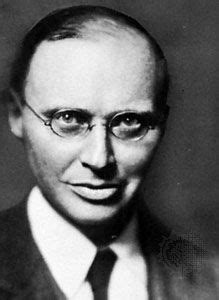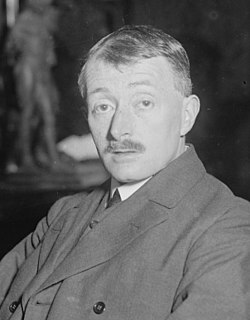A Quote by Lawrence M. Krauss
The universe has a much greater imagination than we do, which is why the real story of the universe is far more interesting than any of the fairy tales we have invented to describe it.
Related Quotes
It is possible that our race may be an accident, in a meaningless universe, living its brief life uncared for, on this dark, cooling star: but even so - and all the more - what marvelous creatures we are! What fairy story, what tale from the Arabian Nights of the jinns, is a hundredth part as wonderful as this true fairy story of simians! It is so much more heartening, too, than the tales we invent. A universe capable of giving birth to many such accidents is - blind or not - a good world to live in, a promising universe. . . . We once thought we lived on God's footstool, it may be a throne.
...the mind is more powerful than any imaginable particle accelerator, more sensitive than any radio receiver or the largest optical telescope, more complete in its grasp of information than any computer: the human body- its organs, its voice, its powers of locomotion, and its imagination- is a more-than-sufficient means for the exploration of any place, time or energy level in the universe.
I love monsters, I love creatures, I love beings, I love aliens. That's more supernatural and more the stuff of fairy tales. Fairy tales are as ancient as we are. I love those stories. I think they're really interesting because they always have more than simply the fright aspect. There's something deeply psychological.
Nature is not personal. She is the compound of all these processes which move through the universe to effect the results we know as Life and of all the ordinances which govern that universe and that make Life continuous. She is no more the Hebrew's Jehovah than she is the Physicist's Force; she is as much Providence as she is Electricity; she is not the Great Pattern any more than she is the Blind Chance.
In the old fairy tales, often a 'moral' was tacked on at the end of the story - say, if a book was going to be marketed to young readers. And the morals don't really suit the stories at all, which makes them super weird - part of why I love the tradition so much. I do play with this, though I am more concerned with ethics than morals.
Independently of the curious circumstance that such tales should be found existing in very different countries and languages, which augurs a greater poverty of human invention than we would have expected, there is also a sort of wild fairy interest in them, which makes me think them fully better adapted to awaken the imagination and soften the heart of childhood than the good-boy stories which have been in later years composed for them.
We have been led to imagine all sorts of things infinitely more marvelous than the imagining of poets and dreamers of the past. It shows that the imagination of nature is far, far greater than the imagination of man. For instance, how much more remarkable it is for us all to be stuck-half of us upside down-by a mysterious attraction, to a spinning ball that has been swinging in space for billions of years, than to be carried on the back of an elephant supported on a tortoise swimming in a bottomless sea.
The universe shows us the life of God, or rather it is in itself the life of God. We behold in it his permanent action, the scene upon which his power is exercised, and in which all his attributes are reflected. God is not out of the universe any more than the universe is out of God. God is the principle, the universe is the consequence, but a necessary consequence, without which the principle would be inert, unfruitful, impossible to conceive.
The Universe story is the quintessence of reality. We perceive the story. We put it in our language, the birds put it in theirs, and the trees put it in theirs. We can read the story of the Universe in the trees. Everything tells the story of the Universe. The winds tell the story, literally, not just imaginatively. The story has its imprint everywhere, and that is why it is so important to know the story. If you do not know the story, in a sense you do not know yourself; you do not know anything.




































